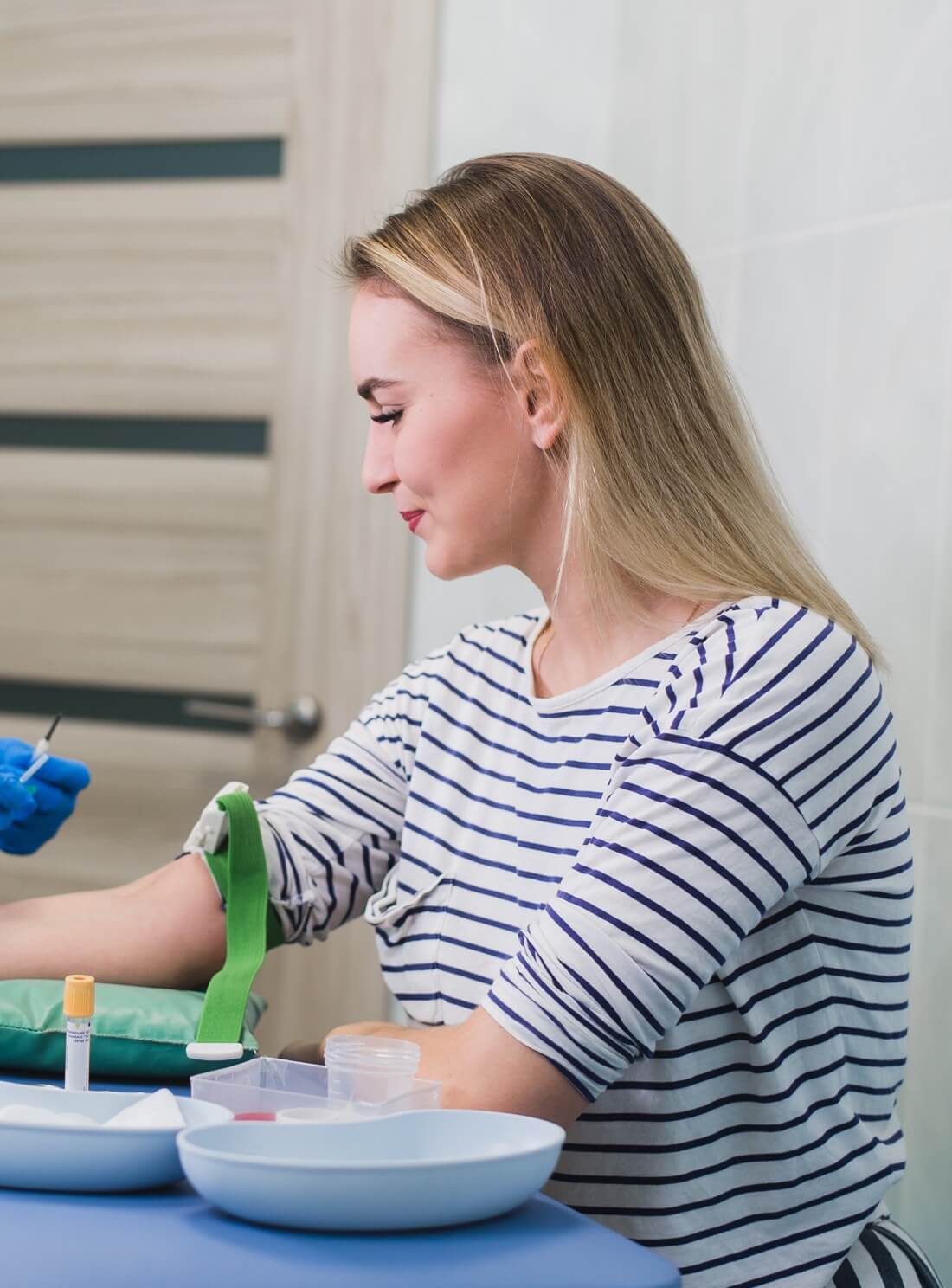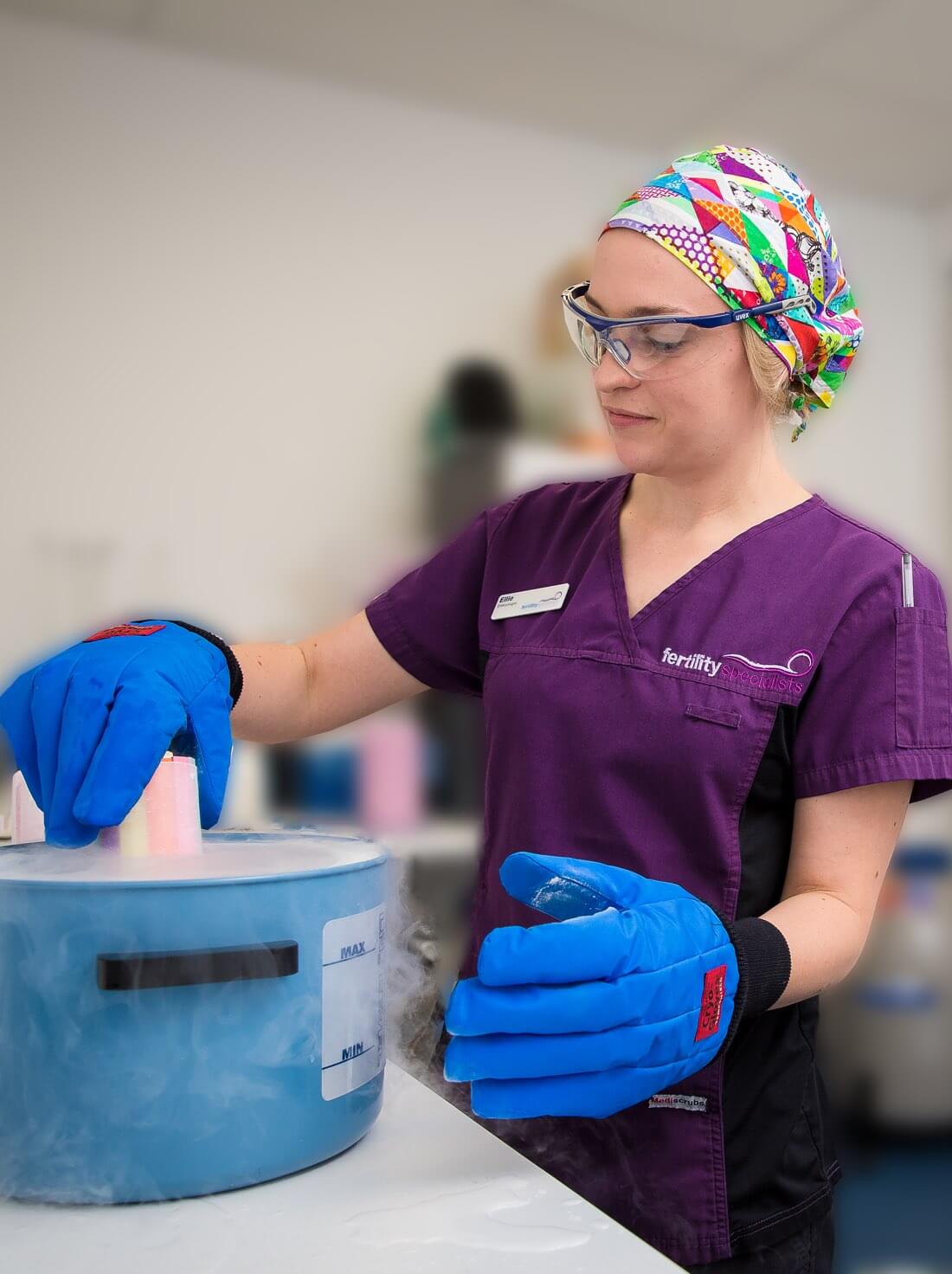Fertility tests
"Why are we having trouble falling pregnant?"
Medical and lifestyle history
Smoking
In men, smoking reduces sperm count and motility, and can even cause erectile dysfunction. In women, smoking can damage the DNA of eggs. Couples who smoke take longer to get pregnant than non-smokers - so if you’re trying for a baby and you smoke, quitting smoking is a great place to start.Alcohol
The National Health and Medical Research Council, Australia’s peak body for developing national health advice, recommends that it’s safest for women who are pregnant, planning pregnancy or breastfeeding, not to drink alcohol.
Weight
A healthy BMI improves your chances of falling pregnant. If you are underweight as a woman, your menstrual cycle can stop. Your fertility can also decrease if your BMI is too high, whether you’re male or female.
Sexual history
Assessing your sexual history is important when evaluating why you are having trouble falling pregnant. For example, how often and when you have intercourse, the use of lubricants and certain STDs can affect your fertility.Age
Falling pregnant and having a healthy baby becomes more difficult as women get older. The chance of a woman falling pregnant after the age of 36 decreases by almost half when compared to her early 20’s."Your lifestyle is incredibly important for your fertility. Both men and women benefit from quitting smoking, avoiding alcohol, and keeping a healthy weight. The better your overall health, the higher your odds of conceiving."
Unexplained infertility
Maybe you have been trying for a year, your health is good, and you have taken steps towards a healthier lifestyle. You have quit smoking, drinking, and you try to time intercourse around ovulation, but you do not conceive.
Unexplained infertility is when your first fertility tests are normal, and you are taking the natural steps you can to improve your odds of conceiving. You are left with frustration, worry and confusion; why are you not getting pregnant?
Professor Roger Hart: What underlying conditions may affect fertility?
“Unexplained infertility is more common than you might think. Many couples are unsuccessful in their first year of trying. Our clinic can do further tests to figure out if there is, in fact, an underlying cause of your infertility.”
Cycle tracking
We use blood tests and ultrasounds to find out when you ovulate. These tests can also help us assess the thickness of the lining of your uterus.Pelvic ultrasound
This is also known as transvaginal ultrasound, and is done when you have an empty bladder. We check your pelvis via an ultrasound, enabling us to see your uterus and your ovaries. For example, we use this test to exclude the presence of fibroids or cysts. If you have fibroids, they could make implantation more difficult.Fallopian tube fertility test
This is also known as a hysterosalpingogram. It is simply an x-ray that checks if your fallopian tubes are open. They need to be open to allow the sperm and egg to meet.AMH blood test
We do various blood tests to check your general health and any other factors that may affect your fertility. The AMH blood test checks your level of Anti-Mullerian hormone and it’s a good indicator of your ovarian reserve.Laparoscopy/Hysteroscopy
These procedures use a small camera to check inside and outside your pelvis and uterus.Semen analysis
We analyse your sperm quality, including concentration, motility, morphology (appearance) and count.Anti-sperm antibodies
As a man, you can produce antibodies against your own sperm. This can be as a result of testicular injury or surgery. If we find antibodies in the semen analysis, this may contribute to why your sperm is unable to fertilise an egg.DNA fragmentation
We can assess your sperm DNA integrity. The DNA of your sperm is important for fertilisation, embryo development, and the chance of an ongoing pregnancy.Blood tests
Blood tests can assess your general health and any other factors that may affect your fertility.TESA
If we do not find sperm in your ejaculated sample, we may do a testicular sperm aspiration (TESA), also called a testicular biopsy. This allows us to collect sperm directly from the testicle.
“Fertility tests are not only for women. It may surprise you, but about 30% of infertility is due to male factors. We make sure to thoroughly assess both partners when we work to identify the underlying cause or causes of infertility.”
When to see a fertility specialist?
If you have been trying to fall pregnant for a year and your overall health is good, you might want to consider seeing a fertility specialist. When you’re a woman over 40, we usually recommend seeking assistance after six months of trying to fall pregnant.
If you have been trying to fall pregnant for one year with no success and you are under 35, you should see your GP. If you are over 35 and have been trying for 6 months, you should see your GP. There are many fertility tests for both men and women that might help you understand why you are having trouble conceiving.
Your GP can help you with the initial tests before seeing a specialist at our fertility clinic. These tests include a pap smear, breast check, and blood test for women, and overall health assessment for men.
Dr Wei Ying Chua: when to see a fertility specialist?
Key points
If you have tried to fall pregnant for one year unsuccessfully and you are under 35 (or six months when you’re over 35), you should consider seeing your GP.
Fertility tests are not just for women.
Important first steps to improve your fertility are to quit smoking, avoid alcohol, and maintain a healthy weight.



















